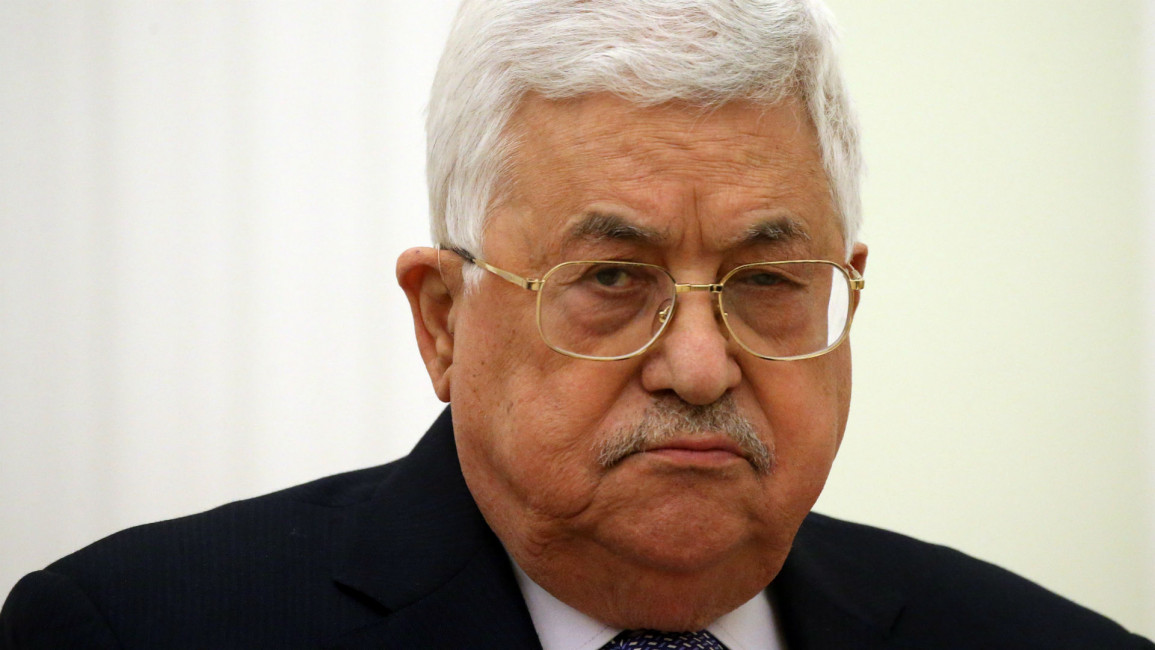Palestinian President Abbas accepts PM Rami Hamdallah's resignation
Palestinian President Mahmoud Abbas accepted the resignation of his government on Tuesday, in a reshuffle seen as a bid by the ageing leader to strengthen his position as a decade-old political split deepens.
Analysts view replacing Prime Minister Rami Hamdallah after five years as part of Abbas' efforts to further isolate his political rivals Hamas, which runs the Gaza Strip.
Hamdallah's government will remain in place while a new administration is formed.
"President Mahmoud Abbas has accepted the resignation of Prime Minister Rami Hamdallah's government and asked it to serve as caretaker until a new government is formed", official news agency Wafa said in English following a cabinet meeting.
It said Abbas, 83, saw a new government as a step towards parliamentary elections, which have not been held since 2006 due to the political schism.
It was unclear how the change of government could impact on policy.
Abbas remains the primary decision-maker and interlocutor with the international community.
Palestinian politics has essentially been paralysed since 2007, when Hamas seized control of the besieged Gaza Strip from Abbas' forces in a near civil war, a year after winning parliamentary elections.
Since then Abbas's governments have maintained limited self-rule in the occupied West Bank, while Hamas has led a rival government in the strip.
The division between the Palestinian parties is seen as a key issue preventing progress in solving the Israeli-Palestinian conflict and improving the situation in the impoverished enclave.
Hamdallah's government has also faced major street protests over a proposed social security law that would have forced private employers and employees to pay into a government-managed fund.
Abbas issued a decision scrapping the proposal late on Monday.
Reconciliation blow
Multiple attempts to reach a reconciliation agreement between Fatah and Hamas have failed.
It was during one such attempt in 2014 that Hamdallah formed what was labelled a national unity government, with both Fatah and Hamas backing a government made up nominally of technocrats.
Since then relations have again worsened and Hamdallah survived an assassination attempt in 2018 when an explosion hit his convoy during a rare visit to Hamas-controlled Gaza.
The new government is expected to be made up only of parties that are members of the Palestine Liberation Organisation, which does not include Hamas or its allies Islamic Jihad.
Hamas condemned the government's resignation, saying Abbas was seeking to establish a "separatist government" to serve his interests.
"Our people need a national unity government," spokesman Fawzi Barhoum said.
Fatah officials said they had begun consultations regarding forming a new government, though no timeframe was announced.
Abbas has taken a series of punitive measures in recent years to try, in vain, to force Hamas to hand over the reins of power in Gaza.
Analysts say such measures increase suffering in the strip, which is already under a crippling Israeli blockade.
Israel maintains a military occupation of the West Bank, but Hamdallah's government has self rule in key cities.
The change in government comes amid a historic breakdown in relations between Abbas and the United States.
US President Donald Trump has pledged to propose a peace agreement but Abbas has refused to talk with his administration since he broke with decades of international consensus and moved his country's Israel embassy to Jerusalem in May last year.
Palestinians see the eastern part of the disputed city as the capital of their future state.
Agencies contributed to this report.
Follow us on Twitter: @The_NewArab



